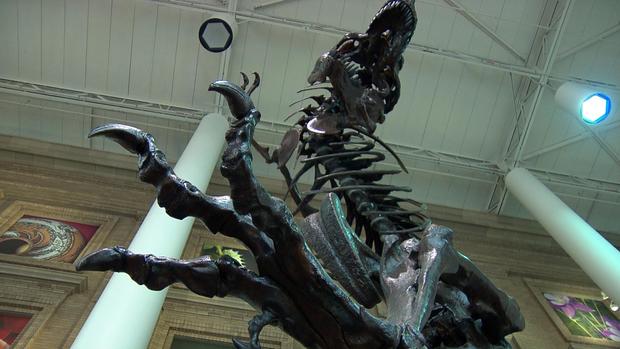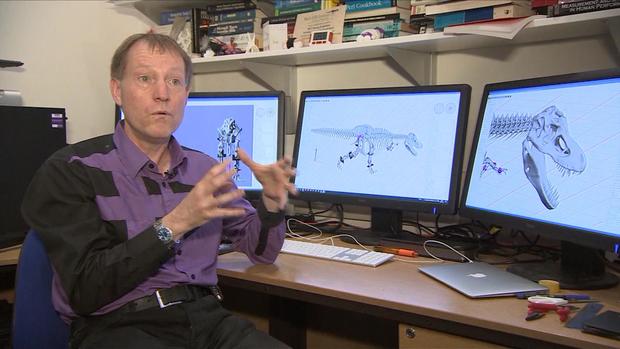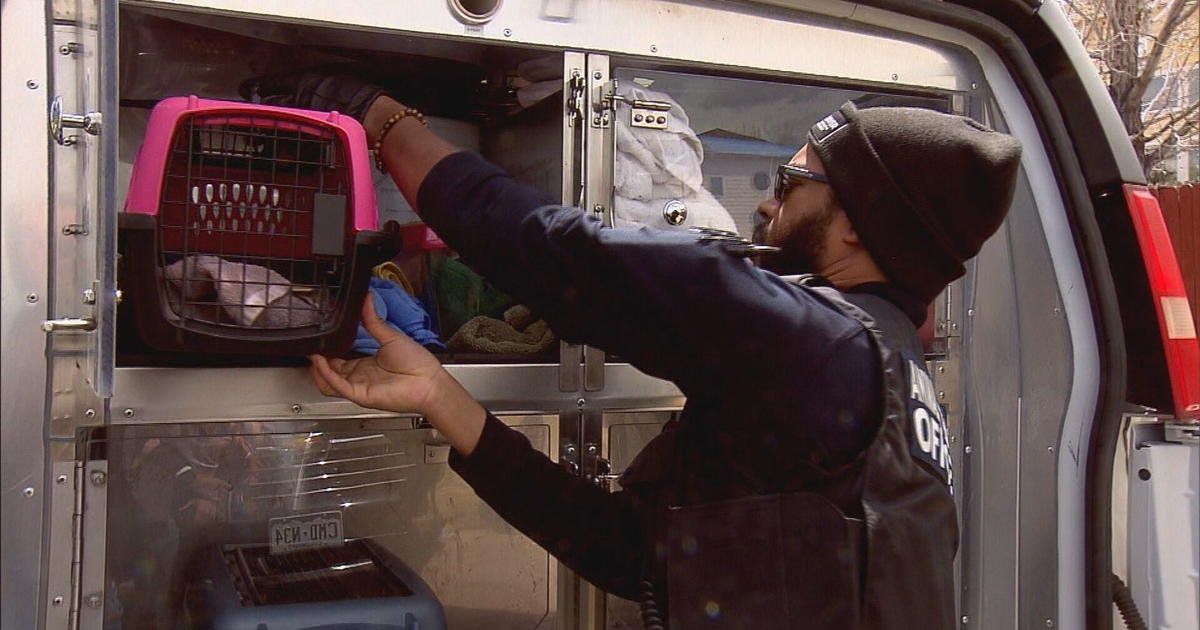Scientists In Colorado, Around World Reconsider The Mighty Tyrannosaurus Rex
DENVER (CBS4) - Scientists in Colorado and around the world are rethinking everything they thought they knew about the world's most popular dinosaur.
"For T-Rex we don't have good footprints or trackways and that would give us their stride length to determine how fast they move," said Samantha Sands of the Denver Museum of Nature & Science.
Sands provided that information about the Tyrannosaurus rex after the release of new research from the University of Manchester in England which revealed apparently wasn't a speedy carnivore like we've seen in the movies.
Scientists at the university believe that, thanks to his enormous size, the T-rex could never have chased down his dinner at high speeds.
"The researchers have combined two separate biomechanical techniques, known as multibody dynamic analysis (MBDA) and skeletal stress analysis (SSA), into one simulation model, creating a new more accurate one," the university said in a release.
Apparently, if a T-rex ran, the model shows that its leg bones would have buckled under their own weight.
"Being limited to walking speeds contradicts arguments of high-speed pursuit predation for the largest bipedal dinosaurs like T-rex and demonstrates the power of Multiphysics approaches for locomotor reconstructions of extinct animals," lead researcher Professor William Sellers told CBS News.
The Tyrannosaurus may have been a pokey beast, unable to chase down its meal, but when it did catch something, it certainly wasn't getting away, according to an earlier study that suggests their bite force was 7,800 pounds-force. That's equal to the weight of three small cars.





